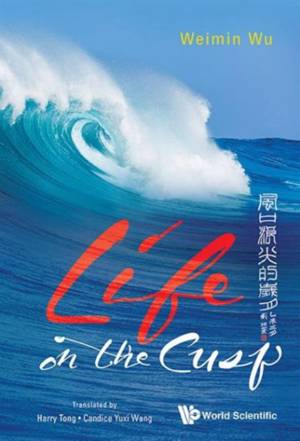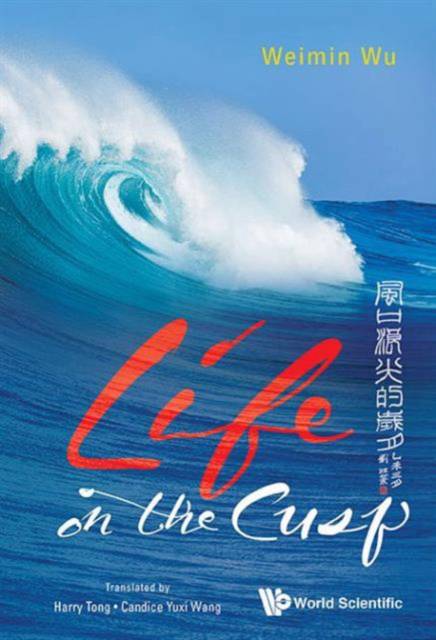
Bedankt voor het vertrouwen het afgelopen jaar! Om jou te bedanken bieden we GRATIS verzending (in België) aan op alles gedurende de hele maand januari.
- Afhalen na 1 uur in een winkel met voorraad
- In januari gratis thuislevering in België
- Ruim aanbod met 7 miljoen producten
Bedankt voor het vertrouwen het afgelopen jaar! Om jou te bedanken bieden we GRATIS verzending (in België) aan op alles gedurende de hele maand januari.
- Afhalen na 1 uur in een winkel met voorraad
- In januari gratis thuislevering in België
- Ruim aanbod met 7 miljoen producten
Zoeken
Omschrijving
IN THE NEWSWeimin Wu: pioneer physicist on Chinese science's turbulent past, promising futureTimes Higher Education, 25 February 2016While the first 30 years of new China's scientific development was a self-reliant era marked by the detonations of the atomic bomb, the hydrogen bomb, and the launch of the first artificial satellite, the second 30 years after the reform and opening up was signified by the introduction of the Internet to China. Weimin Wu is a unique legendary figure whose career spanned both periods. He not only contributed to the bomb and satellite projects, but also sent out the email from China to Switzerland in 1986, which was listed as the first event in the history of China's Internet development. The Tiananmen Square Protest in 1989 changed his life's trajectory, leading him to eventually immigrate to the US. His personal emotional life is also remarkable. With his experiences immersed in both Eastern and Western cultures, Wu came to believe in the convergence theory of social development, which provides a refreshing perspective for the readers. The autobiography records the details of his legendary life stories, from taking pictures with the Chinese leader Mao Zedong, to shaking hands with Deng Xiaoping; from being removed from the Institute of High Energy Physics, to the repealing of his Chinese passport. The story line is full of engaging ups and downs. In that turbulent era, Wu's rich emotional experiences and love stories were also a mirror for the Chinese society, with some details comparable to the plots of suspense novels and movies. The book is well illustrated with many pictures and flows smoothly with a simple writing style. The stories are factual and moving, all too realistic. The author has sincerely revealed his true self to the reader, and at the same time, faithfully described that period of history, giving the reader a grasp on the true workings of history. His comparison of the Eastern and Western cultures, analysis of science and superstition, interpretation of religion and arts, and his 'convergence' theory of social development, are all unique and insightful. This book faithfully tells Weimin's professional and personal life on the cusp and takes readers on a journey to explore true history through an ordinary person's stories.
Specificaties
Betrokkenen
- Auteur(s):
- Vertaler(s):
- Uitgeverij:
Inhoud
- Aantal bladzijden:
- 376
- Taal:
- Engels
Eigenschappen
- Productcode (EAN):
- 9789814651356
- Verschijningsdatum:
- 30/05/2016
- Uitvoering:
- Paperback
- Formaat:
- Trade paperback (VS)
- Afmetingen:
- 150 mm x 226 mm
- Gewicht:
- 498 g

Alleen bij Standaard Boekhandel
+ 109 punten op je klantenkaart van Standaard Boekhandel
Beoordelingen
We publiceren alleen reviews die voldoen aan de voorwaarden voor reviews. Bekijk onze voorwaarden voor reviews.









